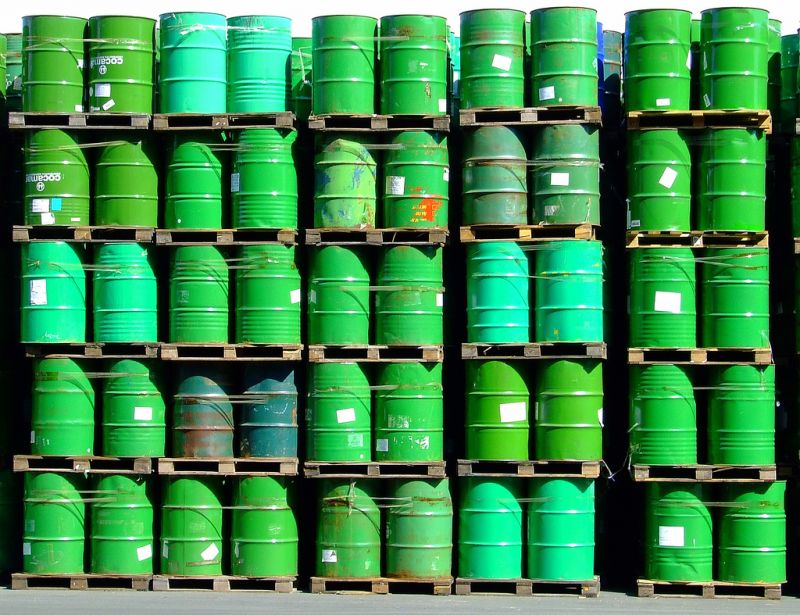How Fracking is Upending the Chemical Industry
Published on by Ina Brüning in Business
As shale-gas compounds flood the market, chemists are working out the best ways to convert them into the ingredients of modern life.
By Mark Peplow

Oil barrels, Representative image, Source: Flick, Author: Sergio Russo
Intrepid's voyage is a striking demonstration of how cheap US shale gas is reshaping the chemical industry and changing the origin of countless manufactured objects. For decades, the industry's raw ingredients have mostly come from crude oil. Chemical plants break down long hydrocarbon molecules in crude to produce a smorgasbord of smaller molecules, such as ethene, propene and benzene — all important precursors to polymers.
But shale gas, which is composed mainly of methane, ethane and propane, is turning that pathway on its head. The abundance of the gas has slashed the costs of these molecules. As a result, some are now usurping large hydrocarbons as the preferred starting point for industrial synthesis.
This shift from oil to gas brings enormous opportunities. According to the American Chemistry Council, a trade group based in Washington DC, the shale boom has attracted about US$160 billion in investment from the US chemical industry since 2011, and will help to create half a million jobs in plastics manufacturing over the coming decade1. But it also poses huge challenges. Some of the main techniques that are used to turn the components of shale gas into more valuable compounds — processes generally known as upgrading — are decades-old, dirty and energy-intensive. And they rarely produce the same mix of chemicals as conventional oil-based routes, which means that some relatively minor, yet valuable, chemicals such as butadiene, an ingredient of synthetic rubber, are becoming scarcer.
These challenges are driving an intensive research effort, spanning industry and academia, to develop catalysts and reactors that can transmute small hydrocarbons in cleaner, cheaper and more efficient ways.
Translating that research into commercial production will depend on the finely balanced economics of a changeable market. It will also require a reliable supply of gas. The US Energy Information Administration predicts that natural-gas extraction in the United States will continue to grow until at least 2040, but that might be too optimistic (see Nature 516, 28–30; 2014).
Meanwhile, concerns that fracking can contaminate groundwater — along with the broader climate implications of extracting fossil fuels — continue to dog the technology. If the glut does persist, however, it could usher in technologies that would form the foundations of a much more sustainable chemical industry. “We could totally redesign our chemical plants,” says Bert Weckhuysen, a chemist at Utrecht University in the Netherlands.
Read full article: Nature
Media
Taxonomy
- Ecosystem Management
- Groundwater
- Ecosystem Management
- Fracking
- Groundwater Pollution
- Oceanographic Survey
- Petrochemicals
- Oil Field Chemicals
- Fracking Technology
- Oil & Gas